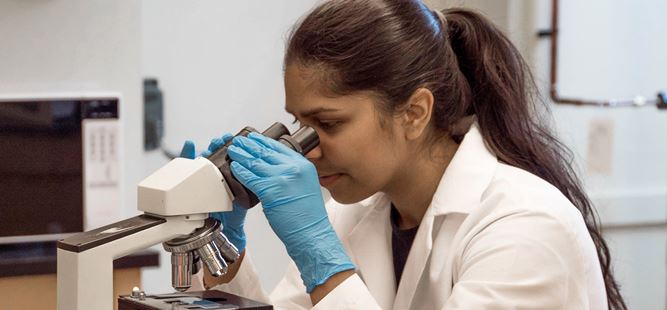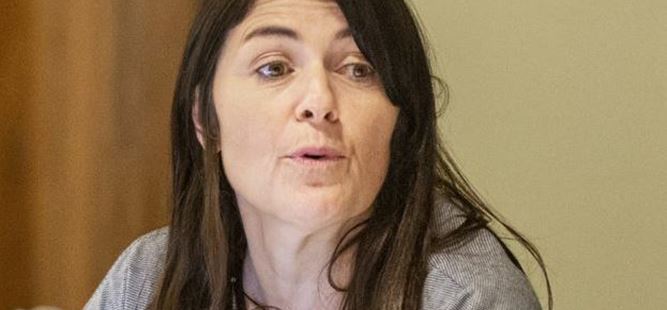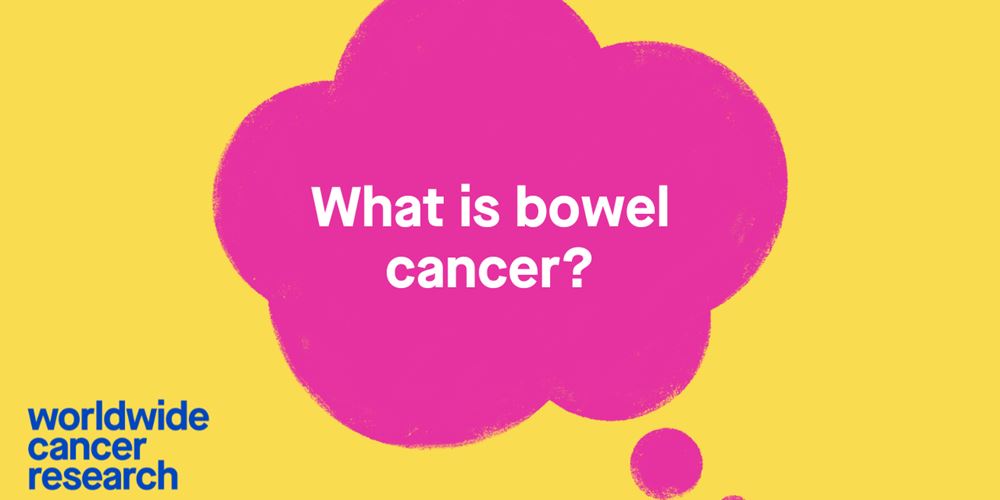Bowel cancer – everything you need to know
2nd April 2021
Bowel cancer, also known as colorectal cancer, is the world's third most common cancer. In 2020, an estimated 1.9 million people worldwide were diagnosed with the disease. Bowel cancer is also the world's second biggest cancer killer, with an estimated 935,000 people dying from the disease worldwide in 2020. But what is bowel cancer? And what are the signs and symptoms you should look out for?
What is bowel cancer?
Bowel cancer is a type of cancer that begins when cells in the large bowel start multiplying and growing in an abnormal and uncontrolled way.
It is one of the most common cancers in the UK - in 2020 it was estimated that over 50,000 people in the UK were diagnosed with bowel cancer. Worldwide, bowel cancer is responsible for nearly 10% of all cancer deaths.
What causes bowel cancer?
The exact reason as to why some cells turn cancerous is not known, but there are certain risk factors that can make it more likely for a person to develop bowel cancer. That’s why experts think that roughly half of bowel cancer cases are preventable.
Bowel cancer usually starts in a polyp, which is a clump of cells on the inner lining of the bowel. Polyps are very common, especially in older people, and only very few develop into bowel cancer.
While there is never any guarantee, there are some risk factors that have been linked to the development of bowel cancer.
Find out how our research has helped discover new ways to prevent bowel cancer
Risk factors for bowel cancer
Age
Age is a big risk factor for bowel cancer. 9 in 10 people that develop bowel cancer are over the age of 60.
Family history
A person might be more likely to develop bowel cancer when they have close family members that were diagnosed with bowel cancer.
Diet
Low intake of fibre plays a major role in the development of bowel cancer. A diet high in red and processed meat can also significantly increase the risk of bowel cancer in a person. That’s why the NHS recommends that all people currently eating more than 90g of red and processed meat (cooked weight) cut down to 70g or less. For more advice on how to eat a healthy and balanced diet, check out the NHS’s advice on living well.
Can your diet prevent bowel cancer?
Alcohol, smoking, inactivity and obesity
Drinking alcohol, smoking, inactivity and excess weight have all been linked to an increased risk of bowel cancer. These lifestyle habits are also implicated in the development of many other cancers. To find out more about these risk factors for cancer, check out the NHS site.
Digestive and genetic conditions
Some digestive disorders, including Crohn’s disease and ulcerative colitis have been linked to the development of bowel cancer. There are also rare genetic conditions, such as Lynch syndrome, that can lead to an increased risk of developing the disease. People with these conditions are usually monitored more closely for the development of bowel cancer.

Find out about how our research has led to new clinical trials for bowel cancer
What are the symptoms of bowel cancer?
Symptoms can be subtle, but if you experience 1 or more of the ones listed below for more than 4 weeks, have it checked out by your GP
- persistent change in bowel habits (e.g, going more often, looser and runnier stool)
- abdominal pain, discomfort or bloating after eating
- blood in the stool
- in cases where the bowel might be obstructed, symptoms can include severe abdominal pain, unintentional weight loss, swelling of the abdomen and being sick
Having these symptoms does not mean that a person has bowel cancer, but if they are persistent, should always be checked out by a GP. It is important not to wait until the next bowel screening test (see below) to see a health care professional.
How is bowel cancer diagnosed?
Bowel cancer can be diagnosed only by visiting a health professional.
The NHS offers home screening tests and while these home screening test cannot diagnose bowel cancer; they can detect small amounts of blood - a potential sign for bowel cancer - in a stool sample. These kits are offered to people aged 60 – 74 every 2 years in most parts of the UK. Scotland is the only exception, where those aged 50+ will receive a home testing kit every two years.
These are incredibly important tests to participate in as they can identify people who might benefit from more testing. You can find out more about bowel screening on the NHS website.
How is bowel cancer treated?
Treatment varies from patient to patient. It may depend on which part of the bowel is affected, as well as the stage of the cancer, but surgery remains the main treatment for many patients. This can be combined with chemo- and/or radiotherapy and other biological treatments.
If the cancer is found early enough, bowel cancer can be stopped from coming back, but advanced cancer can spread – especially to the liver – and become resistant to treatment. Currently 57% of patients survive 10 years or longer after their diagnosis.
Further reading

Our impact: Preventing bowel cancer with the psychiatric drug lithium
Professor Louis Vermeulen made a discovery that has led to the psychiatric drug lithium being tested in clinical trials to prevent bowel cancer.
01 July 2021

Our impact: Clinical trials to stop bowel cancer coming back
Research we funded in 2005 has helped launch clinical trials testing a promising new treatment option for people with bowel cancer.
01 March 2021

Can Your Diet Prevent Bowel Cancer?
Bowel cancer is one of the most common types of cancer worldwide. Eating a balanced diet is important for many aspects of health, but how much does what you eat affect your risk of bowel cancer? Can you prevent it by changing your diet? Our experts explain it all.
29 March 2022

